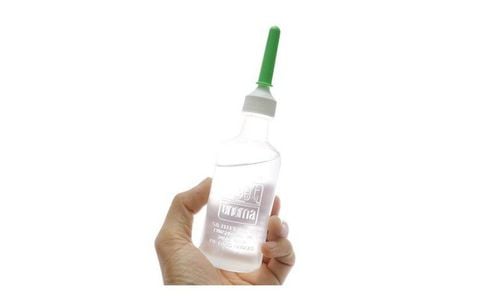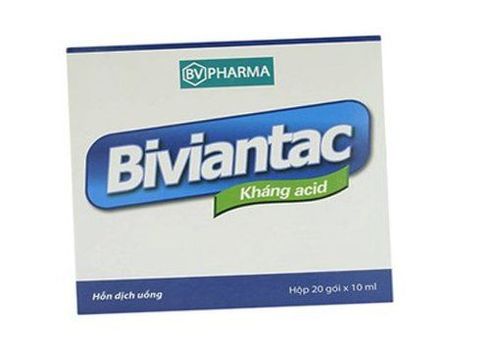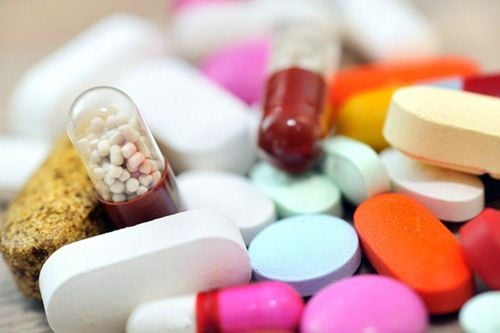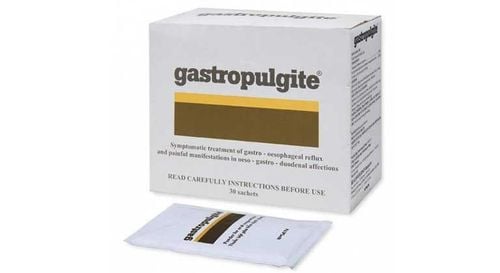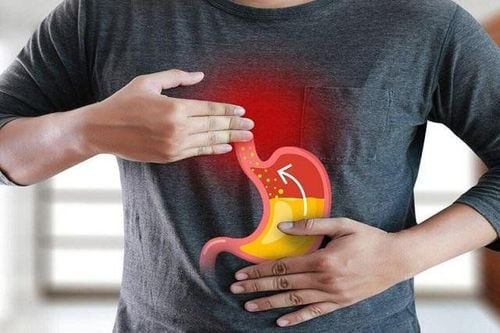This is an automatically translated article.
Peptic ulcer - duodenal ulcer is one of the causes of digestive disorders. Because this disease can cause many serious and life-threatening complications, each person needs to actively prevent, detect and treat the disease early.
1. Peptic ulcer disease - Causes of digestive disorders
Peptic ulcer disease occurs when the lining (innermost membrane) of the stomach - duodenum is damaged. At this point, the layers below the stomach or intestinal wall will be exposed.
Common causes of peptic ulcer disease include:
Infection with Helicobacter Pylori (HP); Side effects of some drugs: Long-term use of anti-inflammatory and analgesic drugs inhibits the synthesis of prostaglandins - a substance that protects the stomach; Regularly smoke cigarettes and drink alcohol and beer; Stress, frequent stress; Eating habits and activities in moderation: Using alcoholic beverages, eating greasy foods, lying down right after eating, eating too quickly, eating at the wrong time, staying up too late,... A typical sign The most common form of peptic ulcer disease is a digestive disorder. Gastritis causes digestive disorders as follows: The stomach is damaged, making the absorption of nutrients from food affected. The elimination process is disturbed, causing the patient to experience abnormal symptoms in the digestive system such as: Nausea, abdominal pain, bloating, bowel disorders, ...
2. Symptoms of digestive disorders caused by stomach ulcers - duodenum
Digestive disorders affecting one or more organs in the digestive system. Therefore, patients need to pay close attention to even the smallest symptoms on the body. If you see the typical warning signs of digestive disorders below, the patient should see a doctor as soon as possible:
Appears dull pain in the upper or lower abdomen, the pain is more pronounced when the patient eats sour or spicy food or is too hungry; The patient has a feeling of tightness in the abdomen, especially after meals. The cause of this phenomenon is that the food is not fully digested and stagnate inside the digestive tract; The patient feels nauseous or frequently vomits due to gastrointestinal irritation; The patient has constipation, frequent bowel movements, diarrhea, bloody stools,... This symptom is due to impaired elimination function of the digestive system; The patient suffers from anorexia, weakness, and weight loss.
3. How to treat gastritis - duodenal ulcer, control digestive disorders
If detected and treated promptly, peptic ulcer disease will not affect the patient's health much. However, if not treated early, the disease can easily progress to chronic disease, making it difficult to treat definitively and easily leading to many dangerous complications.
Therefore, to treat peptic ulcer disease and control digestive disorders caused by this disease, the doctor will prescribe the following:
Diet and living: The patient needs pay attention to eat soft food, eat slowly, chew thoroughly, divide into many meals a day, do not eat too full, avoid stimulants, greasy foods, strong spices. At the same time, patients should go to bed early, get enough sleep, exercise regularly, avoid stress and anxiety; Drug regimen: Some groups of drugs are commonly used in the treatment of peptic ulcers, including: Antacids: Neutralizes acid in the stomach and duodenum but does not affect activity. secretion of gastric juice in this organ. Antacids contain aluminum, potassium, and magnesium hydroxide. The drug is usually taken about 1 hour after eating; H2 blocker: It reduces the acid secretion of the stomach and duodenum. This medication is usually given by mouth or intravenously; Proton pump inhibitors ; Group of drugs to protect the stomach lining, against stomach acid; Antibiotics kill HP bacteria; Note: The problem of choosing a drug, dose, and duration of medication depends on the condition of each patient. Therefore, patients need to consult with a specialist to have a suitable treatment regimen, not to self-medicate.
4. Nutrition for patients with gastric and duodenal ulcers with digestive disorders
Patients with peptic ulcer disease need to have a reasonable diet. Patients need to supplement certain foods and abstain from certain foods. Specifically:
4.1. Good foods for patients with peptic ulcer disease Patients should prioritize adding the following foods to their diet:
Milk and eggs have the effect of neutralizing the amount of acid in the stomach. Patients should drink warm milk, eat steamed eggs or cooked eggs with porridge. However, patients should only eat eggs 2-3 times a week, each time use 1-2 eggs, should not eat more; Green vegetables and fruits have the effect of neutralizing stomach acid, reducing inflammation, laxative and adding many good nutrients to the body. The vegetables and fruits that are good for people with peptic ulcers and digestive disorders are: Kale, bok choy, cabbage, apples, oranges, kiwi,...; Foods containing a lot of easily digestible protein such as pork, lean fish,...; Vegetable oils such as sunflower oil, sesame oil, soybean oil, rapeseed oil,...; Honey and turmeric are folk remedies that have anti-inflammatory effects, reduce gastric secretion and alkalize the acidity of gastric juice; Bread is a good choice from the powdered sugar group with the advantage of low fat, easy to digest. However, patients with peptic ulcer disease should not eat too much bread to avoid bloating. 4.2. What foods should patients with peptic ulcer disease avoid? Some foods and drinks that patients need to limit include:
Processed foods: Ribs, sausages, ham, ... because they can cause flatulence, increase intestinal emissions; Hard and chewy foods such as: Meat with many tendons, cartilage, high-fiber vegetables, raw green fruits,...; Hot and spicy spices, sour salt: Chili, pepper, garlic vinegar, onion pickle, salted eggplant,...; Sour fruits: Green mango, crocodile, lemon, toad,...; Carbonated drinks, stimulants, alcohol,... because they can cause damage to the stomach lining; Tea, strong coffee, ... cause insomnia, affect daily activities and cause stomach pain. Notes when processing food for patients with peptic ulcer disease:
Processing by chopping, cooking food; Should eat food immediately after cooking, limit to long because it will lose important nutrients; Choose clean, clear food, eat cooked food to kill all bacteria and pathogens.
5. Lifestyle adjustment for patients with peptic ulcer disease
To control peptic ulcer disease and prevent digestive disorders, patients should note:
Eat slowly, chew thoroughly. After eating, do not exercise vigorously, exercise, run or work too hard; The last meal of the day should be about 3 hours before bedtime. Do not eat too late because it will cause the stomach to be overloaded at night; Having a reasonable working, relaxing and resting regime; Find ways to relax psychologically, avoid stress and stress; Limit the use of alcohol, beer, should not smoke; Use medications exactly as prescribed by your doctor. Peptic ulcer - duodenal ulcer often causes symptoms of digestive disorders. If not treated in time, the disease can lead to many serious complications. Therefore, patients should not be subjective, when there are signs of disease, they need to be examined for accurate diagnosis and effective treatment. After recovering from the disease, the patient also needs to maintain good habits so that the ulcer does not have a chance to recur.
Please dial HOTLINE for more information or register for an appointment HERE. Download MyVinmec app to make appointments faster and to manage your bookings easily.




